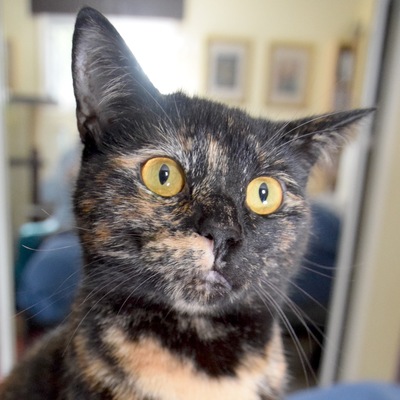- In short: One of the first cashless gaming trials in NSW found the technology made little difference to the behaviour of gamblers.
- The Wests New Lambton trial has received criticism from gambling reform advocates, who say it did not include a card with binding and default limits.
- What’s next?: The Independent Panel on Gaming Reform will provide findings from an expanded statewide cashless gaming trial.
Gambling shouldn’t be privatised. Idk why we allow people to profit from addiction. Their incentive is just to make it worse.
Personally I’d say we should take the approach we did to smoking. Ban its advertising, severely restrict where it can be done (in this case, ban pokies outside of casinos), and tax the shit out of it.
Taxing the shit out of it results in poorer outcomes for gamblers. The average minimum return rate is already defined legally, for pokies it’s something like they must return ~90% per hour. Adding more tax on top would result in a lower return rate
I was actually thinking of the tax as being more on the back-end in this case, rather than consumer-facing in the way the tobacco tax is.
I was also actually largely thinking about sports gambling there, rather than pokies.
Or just have all gambling be run by the government so the profits go to social services to support people who bankrupt themselves from gambling.
If only clubsnsw wasn’t in bed with the government
Gambling in general, not just pokies.
Which bit? Yes ban all gambling advertising. It’s mostly sports betting that needs to take the hit there. Tax it all, yes, preferably in a way that isn’t directly translatable into higher fees for users, so like an increased land tax/rates bill, for example, rather than “5% of every gambling transaction”. But the pokies thing is very specific to Australian pubs and clubs. Poker isn’t really an issue, and sports betting obviously happens online and not in physically space, so it doesn’t really apply.
I agree to an extent.
My opinion is we need a bit of a brute force approach to help correct how far off course compared to the rest of the world we are.
Ban advertising.
Tax the venues with pokies - rla revenue profit model that makes having them in clubs / pubs net negative to anyone running a venue.
Tax online gambling, ban their advertising.
Block non conforming online gambling sites.
Etc.
We are over 5 times the per capita spend of second place on gambling spend globally. Until we aren’t first things need to drastically change.
Yeah nah, the sin tax on smoking already heavily penalises less privileged people and is very ends-justify-means. Plus gambling is much older than nicotine in terms of habits humans continue to do.
Smoking stuff is a pissweak compromise position trying to undo harm by massive corporations with powerful vested interests. Without mass market cigarettes and advertising no way so many people do it for the mild stimulant hit. Restricting gambling is more like trying to stop stimulant drug use in general vs smoking specifically.
Besides, while I don’t gamble I can acknowledge that a few bets or a game of cards can be pretty fun. If we can manage the framework it happens in, such that the goal is a good balance between fun and harm vs the capitalist framework of maximum wealth extraction then I don’t see the harm. It’s not like a game of poker is a worse decision than a bottle of wine or sitting in watching tv vs going for a run or something.
a few bets or a game of cards can be pretty fun
I must say, I have a much much more positive opinion of blackjack or poker than I do of sports betting—in fact, my opinion on those is basically neutral if not mildly positive—and I feel more positively towards sports betting than pokies. I’m not interested in banning any of those, just in decreasing their societal prevalence and in decreasing the amount the industry is profiting from their exploitation. It shouldn’t be normal for kids to be exposed to gambling when they watch Friday Night Footy and start casually discussing the betting odds. The companies shouldn’t be making massive profits by causing harm, without also being made to pay back to society in some way.
Yes, a bit of betting can be fun. So can drinking. And we have a pretty big excise on alcohol. Based on the numbers in this page, a case of 24 cans of beer has about $18 added to its price because of tax (and that’s not even counting GST!). When that case probably costs less than $100, that means it’s an over 20% tax. So “people should still be allowed to do it because it’s a fun occasional thing” isn’t a very strong argument against increasing tax on gambling.
I should probably admit though, I mainly included the tax thing so my comment flowed better and followed the “rule of 3”. I would like to see it taxed more, that much is true. But I can’t actually think how to practically institute such a tax, which I would rather were on the back-end, more similar to corporate taxes than to GST. The first thing I can think of would be to do it via council rates and zoning laws, but that would have the unfortunate effect of benefiting online gambling over casinos and (for now—though as I’ve said, I would like pokies outside of casinos to be banned) clubs/pubs, which isn’t ideal either.
But regardless of the whole tax thing, for me the most important thing is by far the other two issues. Advertising should be outright banned, the same as smoking ads have been for a long time. And pokies should not be allowed to suck the life out of our local clubs and pubs. Australia has 20% of the poker machines in the entire world (despite about 0.5% of the world’s population), and a massive 80% of pokies outside of casinos. That should be banned. If you want to play the pokies, you should go to a casino. The “clubs couldn’t survive without pokies” bullshit needs to die. They do fine in Western Australia. They did fine in Queensland all the way up until the '90s. They do fine all over the rest of the world.
Yeah we probably agree more than disagree. I just see taxing sin being a cop out that leaves all the harm of privatisation, all the harm of regressive taxation and corruption of peverse incentives, and then cops out on the social responsibility by going “we’re already beating you poors with the stick, what more could you want from us!?”
Defs if it was government run as harm minimisation (which incidentally is what I’d like to see done for alcohol and other drugs) it should be done in a way which does not promote or glorify it but also doesn’t shame people for wanting to do it. Just try not to get people hooked (or perhaps: not try to get people hooked) and offer non judgemental and non patronising assistance for those who want to stop or limit themselves.
taxing sin being a cop out that leaves all the harm of privatisation, all the harm of regressive taxation and corruption of peverse incentives
All that is true, and unfortunate. Personally I just see it as doing more good than harm, especially if the revenue raised were to go to harm minimisation services, like if the alcohol excise were used to fund alcohol addiction treatment services.
I’d prefer it to what we have for sure. I just think we can do better and should hold our government to actually governing and using power to build systems to provide the needs of society (of which vice is many!) in a pro-social fashion.
If it were just public then it’d be the government exploiting people’s addiction. Honestly I see no way out of this besides regulating it out of profitability.
Maybe casinos have to have a net odds at like 50:50.1 and then charge for entry. Big wins would probably not happen so it might not work. But I’ve never met anyone who gambled regularly and it wasn’t a problem.
So it’s a bit cooked but basically humans do stuff that’s harmful, governments supplying it at least removes profit incentives.
You can’t ban gambling out of existence but a government body can be set up in such a way that odds are fairer, only less addicting games are offered (e.g. no pokies because flashing lights and sounds are satanic), the rooms have natural light and clocks etc. Any money made goes into gambling assistance programs or community improvement or whatever.
Would people still get hurt? yes. Would there be corruption? yes. But there’s no way it can be worse than private operations which still have all the same problems with less transparency and being harder to regulate, plus the profit incentive.
Think of it like injecting rooms, trust me it’s way safer and less glamorous to shoot up /get supplies at one of those than a house party.
Yeah. That sounds like a better plan.
In the US most of the lotteries are run by the government (typically state governments). If they can do it we can too.
Germany actually has a similar approach with the gambling agency.
It actually tries to set rules that protect gamblers (no loans, no advertising, no parallel games, regulated user accounts) and limits the kinds of games available.
https://www.gluecksspiel-behoerde.de/de/praeventionspielerschutz/massnahmenkatalog
Proceeds from gambling don’t have to be non-profit, though. So gambling is still lucrative for casinos with a license. Or the states with their state run lottery.
https://de.m.wikipedia.org/wiki/GKL_Gemeinsame_Klassenlotterie_der_L%C3%A4nder
The idea is that if the government gets all the profit from gambling then that money can go into social services to support the people who bankrupt themselves from gambling.
The government also gets their cut from taxes, and poltical parties from donations, so they are likewise incentivised
Why would you expect changing the method of payment to effect spending habits…?
You wouldn’t, which is exactly why the industry is pushing for a scheme like this.
I would expect an increase in gambling from cashless because you might not realise how much money you’re feeding in
I know that the whole cashless gaming is supposedly targeting tax cheats blah blah,.
But the whole cashless thing is making me twitch.
You are further distancing money from a physical/logical good to an abstract thing that doesn’t really mean anything.
The move away from cash to cashless is having the same effect.
Paying $15 when you only have a $20 in your wallet to last you to payday is a lot different to just tapping your card for those new shoes, or another $500 of ‘points’ to flush through a pokie.
idk, maybe I’m an old guy barking at the moon, but something feels really off. I think I’m going to pull out $500 in cash, and use that to pay for everything and see if it changes my perspective.
deleted by creator
Nah, get rid of cash for the pokies. It alone won’t help with harm reduction but the pokies are one of the most common ways to launder money in this country. People use the resources taxes buy and should be paying their fair share.
We also need cashless gaming cards with default and settable hard limits with restrictions on when you can change it to help combat the addictions.
Yeah, I get it.
But I reckon the real tax cheats.- sorry, I mean tax minimisation! - aren’t the ones putting cash through pokies. They are using companies, discretionary trusts etc and various tax jurisdictions to avoid -oops! I mean minimise!- tax.
Whatever happened as a result of the Pandora Papers? Nothing. Because it’s basically all legal and the way the rich evade - oops! I mean minimise!- tax.
It’s both, stopping one doesn’t mean you can’t stop the othet
@ephemeral_gibbon @No1 I’d rather get rid of the pokies completely
Oh absolutely, but an improvement is still good. Pokies are absolutely shit and should be ripped out, but it’ll be harder to get that to happen.
Because you can strictly enforce spending limits per person. The current system allows people who hit the limit to go down the street to an ATM and get more cash out. A digital card system is designed to close that loophole.
This is the best summary I could come up with:
Gambling reform advocates have criticised the findings from the first cashless gaming trial in New South Wales.
The trial ran at food and entertainment venue Wests New Lambton, a suburb of Newcastle in the state’s Hunter region, from October 2022 until June last year.
The final report was based on post-trial interviews, and prepared by Professor Paul Delfabbro from the University of Adelaide on behalf of Liquor and Gaming NSW (L&GNSW).
“We need to see the introduction of the recommendation from the NSW Crime Commission for a mandatory cashless card that includes binding and default limits,” she said.
In a statement, L&GNSW said the Wests trial in Newcastle was designed to assess how cashless gaming solutions operated in real-world conditions and how people used harm minimisation tools.
The expanded trial started two weeks ago at Tweed Heads, in the state’s far north-east.
The original article contains 534 words, the summary contains 141 words. Saved 74%. I’m a bot and I’m open source!











